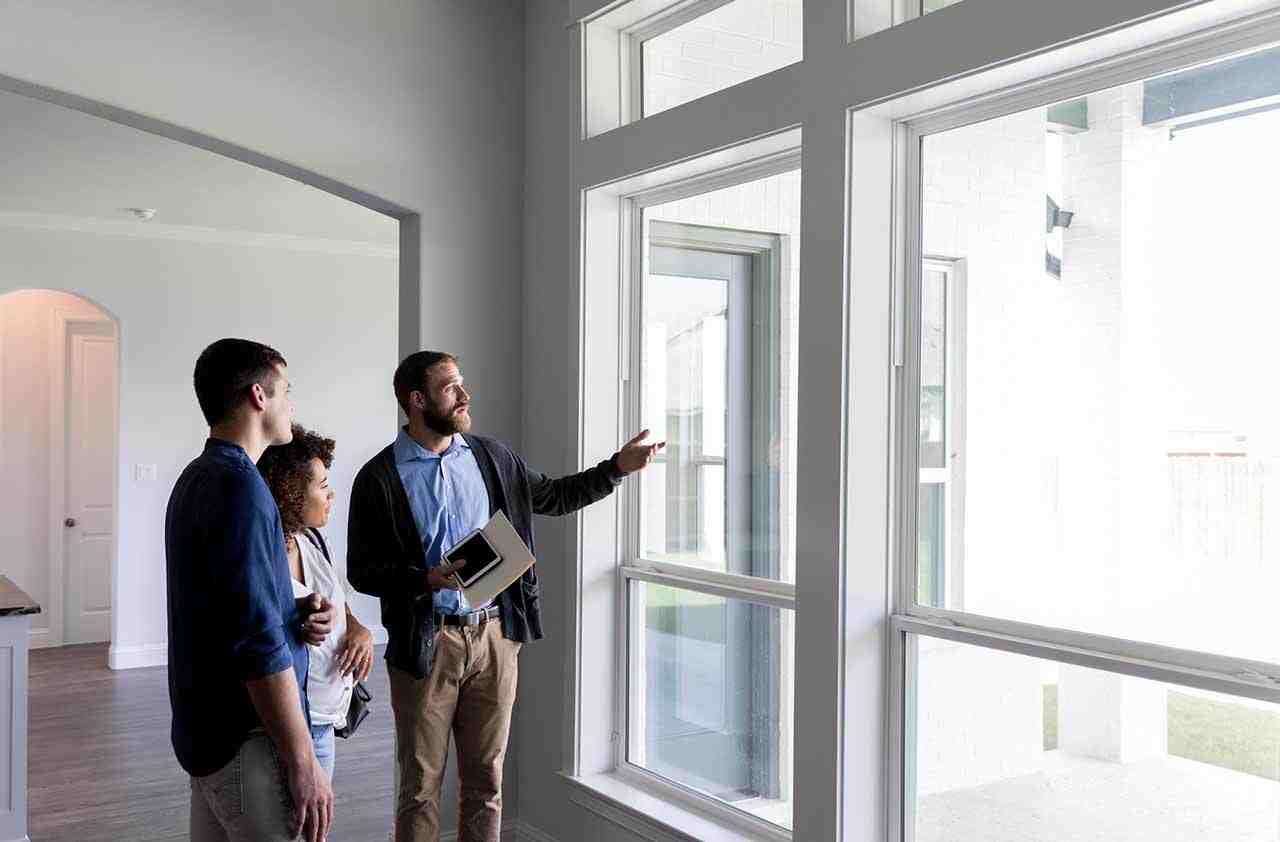Why would FHA not approve a home?
Contents

Home Loan Limits That cost too much cannot qualify for an FHA loan. HUD sets loan limits each year, which vary by area and number of units. The FHA can only insure an amount up to this limit. A high-end homeowner, with a standard FHA payment of 3.5 percent, may have a loan amount that exceeds the limit.
What do FHA subscriber approvals seek? Common Checkpoints and Documents The borrower’s credit scores and (possibly) credit reports. Debt to income ratio, or DTI. Bank statements showing current and audited assets. Payment stubs showing year-to-date earnings, and other employment documents.
What would disqualify a house from an FHA loan?
Here are some of the issues that are commonly pointed out during FHA assessments: Peeling paint in homes built before 1978 (due to lead-based paint issues) Pointless bedrooms of a secondary exit, such as a window. Security issues such as unopened windows or missing handrails.
What can make an FHA loan fall through?
The reasons why FHA loans fall are the same for every other loan that falls. These include: Insufficient funding for down payment or closing costs. A lower credit score than when you completed the application.
What kind of property qualifies for an FHA loan?
FHA home loans can be used to purchase or refinance single-family homes, two- to four-unit multifamily homes, condominiums and certain manufactured homes. Specific types of FHA loans can also be used for new construction or renovation of an existing home.
What would make a house not qualify for FHA?
Housing Must Be Primarily Residential It is possible to purchase a mixed-use property using an FHA home loan and its low down payment requirements, but if the home is not primarily used as a residence and has 50 % or more floor space taken up by non-residential use may not qualify for an FHA mortgage.
Why is it so hard to buy a house with an FHA loan?
You can’t buy every home with an FHA loan Also, the FHA has a few more loopholes than conventional loans. To be approved for the loan, the home must undergo an inspection conducted by the U.S. Department of Housing and Urban Development.
What is the downside of an FHA loan?
Higher total mortgage insurance costs. Borrowers pay a monthly FHA mortgage insurance premium (MIP) and an upfront mortgage insurance premium (UFMIP) of 1.75% on each FHA loan, regardless of the down payment. A 20% down payment eliminates the need for an PMI on conventional purchase loans.
How hard is it to get a FHA home loan?
Read our editorial standards. To qualify for an FHA loan, you need a down payment of 3.5%, a credit score of 580, and a DTI ratio of 43%. An FHA loan is easier to obtain than a conventional mortgage. The FHA offers various types of home loans, including home improvement loans.
What will cause an FHA loan to be denied?
Reasons for FHA Rejection There are three popular reasons why you have been turned down for an FHA loan: bad credit, a high debt-to-income ratio, and insufficient overall cash to cover down payment and closing costs.
What does the FHA inspector look for?
An FHA inspection is an in-depth analysis of the home. You are looking for structural issues, hazards, and ensuring that the home is in good habitable condition while meeting FHA’s minimum property standards. The FHA inspection also verifies the real market value of the home.
How often do FHA loans get denied?
Denials were higher – nearly 14 percent – for borrowers seeking government-backed loans (FHA, VA, USDA), and lower – 10.8 percent – for those applying for conventional mortgages eligible because purchases from investors Fannie Mae and Freddie Mac.
Can FHA loan be denied after pre approval?
So yes, your FHA loan can still be denied / denied, even though you have been approved in advance by the lender. It is quite common for a mortgage loan to be denied during the underwriting. That is the whole point of this process.
Whats better for the seller FHA or conventional?

There are two situations when a seller has to choose a Conventional bid over an FHA bid. First, if the property has safety issues or things that need to be fixed, a Conventional valuation is less likely to indicate those issues while an FHA appraiser needs those to be fixed before closing.
Sellers like FHA or conventional? The FHA loan is a government secured loan. … They also generally have lower closing costs than conventional loans. All these factors make FHA loans an ideal choice for first time home buyers. While offering borrowers more flexibility, they often have higher interest rates than their conventional counterparts.
Why do sellers prefer conventional over FHA loans?
Duration of time to close. In general, conventional loans simply tend to close faster. Less paperwork and fewer stipulations allow these mortgages to be processed faster, and many sellers find this an attractive bonus.
Why are FHA loans less attractive to sellers?
Another potential pitfall for sellers is that FHA loans have stricter criteria than conventional mortgages. The appraiser wants to look at the house more closely, and sales can be blocked by things like torn paint, broken windows or malfunctions.
Why is a conventional loan better than FHA for a seller?
FHA loans allow for lower credit scores than conventional mortgages do, and are easier to qualify for. Conventional loans allow for slightly lower down payments. … FHA loans are secured by the Federal Housing Administration, and conventional mortgages are not secured by a federal agency.
Do sellers prefer FHA or conventional loans?
“If there are multiple offers on a home, sellers tend to give preference to borrowers with conventional financing,” Yates said. Why? Sellers worry that if they accept an offer from FHA-funded borrowers, they will encounter problems during both the home appraisal and home inspection process.
Why are FHA loans less attractive to sellers?
Another potential pitfall for sellers is that FHA loans have stricter criteria than conventional mortgages. The appraiser wants to look at the house more closely, and sales can be blocked by things like torn paint, broken windows or malfunctions.
Why do sellers dislike FHA loans?
There are two main reasons why sellers may not want to accept offers from buyers with an FHA loan. … The other main reason sellers don’t like FHA loans is that the guidelines require appraisers to look for certain flaws that may raise concerns about habitability or health risks, security or safety.
Are FHA loans difficult for sellers?
FHA loans require the home to be appraised by a highly qualified appraiser. The condition of the property is one of the biggest reasons why an FHA mortgage can be a problem for a home seller. These appraisers are looking to ensure that the home is in good condition, safe and habitable.
Do sellers discriminate against FHA loans?
There is no law that can force a seller to accept FHA financing, although sellers artificially limit their group of buyers by doing so. Buyers, however, can help their cause by agreeing to a “as is” assessment, for one. They may also consider asking for less vendor contributions to help with closing costs.
Are FHA loans bad for sellers?
Unfortunately, some homeowners see the FHA loan as a riskier loan than a conventional loan because of its requirements. The more lenient financial requirements of the loan can create a negative perception of the borrower. And, on the other hand, strict loan appraisal requirements can make the seller nervous.
Do sellers discriminate against FHA loans?
There is no law that can force a seller to accept FHA financing, although sellers artificially limit their group of buyers by doing so. Buyers, however, can help their cause by agreeing to a “as is” assessment, for one. They may also consider asking for less vendor contributions to help with closing costs.
Why do sellers hate FHA loans?
There are two main reasons why sellers may not want to accept offers from buyers with an FHA loan. … The other main reason sellers don’t like FHA loans is that the guidelines require appraisers to look for certain flaws that may raise concerns about habitability or health risks, security or safety.
How does a FHA loan affect the seller?
FHA loans attract buyers who may not have the money savings for out-of-pocket closing costs. The FHA loan allows the seller to collect up to 6 percent of the value of the home to pay the buyer’s closing costs, making it easier for the buyer to afford the home.
Why is it so hard to buy a house with an FHA loan?

You can’t buy every home with an FHA loan Also, the FHA has a few more loopholes than conventional loans. To be approved for the loan, the home must undergo an inspection conducted by the U.S. Department of Housing and Urban Development.
How hard is it to get an FHA home loan? Read our editorial standards. To qualify for an FHA loan, you need a down payment of 3.5%, a credit score of 580, and a DTI ratio of 43%. An FHA loan is easier to obtain than a conventional mortgage. The FHA offers various types of home loans, including home improvement loans.
What is the downside of an FHA loan?
Higher total mortgage insurance costs. Borrowers pay a monthly FHA mortgage insurance premium (MIP) and an upfront mortgage insurance premium (UFMIP) of 1.75% on each FHA loan, regardless of the down payment. A 20% down payment eliminates the need for an PMI on conventional purchase loans.
Why you should not get an FHA loan?
There are several reasons to avoid FHA loans, including higher upfront costs and in each payment. Not being ready to take out a mortgage: A small down payment can be a red flag. … Advance insurance: When you put less than 20%, you have to pay for the mortgage insurance. FHA loans come with two types of insurance.
What is the catch with an FHA loan?
Mortgage insurance protects the lender if you cannot pay your mortgage down the road. If your down payment is less than 20%, you will usually have to pay this insurance no matter what type of loan you have.
Why are FHA loans less attractive to sellers?
Another potential pitfall for sellers is that FHA loans have stricter criteria than conventional mortgages. The appraiser wants to look at the house more closely, and sales can be blocked by things like torn paint, broken windows or malfunctions.